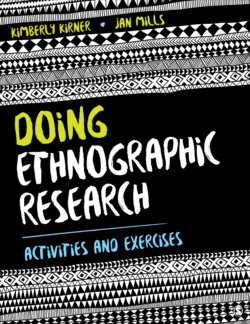Читать книгу Doing Ethnographic Research - Kimberly Kirner - Страница 128
На сайте Литреса книга снята с продажи.
Instructions
ОглавлениеStudents should reflect on the research question they formulated in Activity 1.7 using the descriptions of each form of risk, assessing their project for risks and developing mitigating strategies. Using the Risk Assessment Graphic Organizer (at the end of the chapter) and the prompts provided, independently or in discussion with a small group of three to four colleagues, identify possible risks, first to your participants and then to yourself, and describe how you think you might alleviate, reduce, or respond to the risks your research entails. To identify trouble spots, use your group to reflect creatively on your research, describing how they might feel as your participant and as yourself. Remember that your participants may not face all types of risk.
Psychological-emotional risks: Negative feelings and issues related to mental health, ranging from mild (boredom) to moderate (feelings of sadness) to severe (triggering episodes in people with PTSD by asking about their trauma)
Social risks: Negative interactions and consequences to relationships, ranging from mild (provoking short-term disagreements between members of a family) to moderate (a friendship failing) to severe (excommunication of a member from a church)
Economic risks: Negative impacts to participants’ ways of making a living, ranging from mild (taking a day off work to participate) to moderate (losing some clients due to a boycott) to severe (losing their job)
Physical risks: Anything that can injure participants or make them ill, including violence or risks to patients in medical-related studies
Legal risks: Resulting civil or criminal actions taken against participants, usually because their activities are brought to light through participation in the study. These range from moderate (a misdemeanor for unlicensed food vending) to severe (deportation of an undocumented immigrant)
